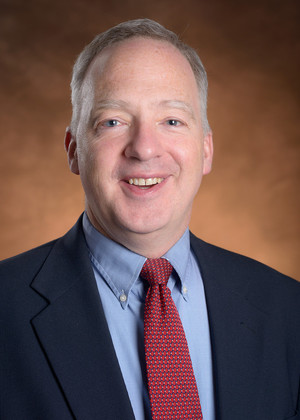Getting to Know: Liberal Arts and Essential Studies

College Relations publishes a monthly series of news articles, features and Q&A interviews highlighting various departments on campus in an effort to assist the faculty and staff in gaining an increased awareness about and understanding of each other’s roles and responsibilities.
The October Q&A is with Dr. Jim Margetts, Dean of Liberal Arts and Essential Studies.
Q: What are your main responsibilities as the Dean of Liberal Arts and Essential Studies?
A: My main responsibilities include supervision of the faculty and staff within two departments (Communication, Music, Art, and Theatre; Justice Studies, Social Sciences, and English) and two academic support units (Office of Academic Success; Transitional Studies Program). I also oversee the operation of the college’s Essential Studies Program in which nearly every enrolled undergraduate student participates.
Q: With such a diverse school, how do you stay current on all the happenings involving students and faculty?
A: That’s a good question. I meet several times each month with the leaders of each of the above units and with the team of Office Assistants to receive updates from them. In addition, we have a monthly faculty meeting in the School of Liberal Arts where updates are provided and where issues are presented and discussed. I also have the privilege of sitting down with each faculty and staff member at least once a year to review together their professional activities and goals.
Q: What does the term liberal arts mean to you? And what is the value of earning a liberal arts degree?
A: More great questions, ones that many college and university leaders across the country are grappling with at present. To me, the term liberal arts describes an integrated set of skills and tools that allow us to view challenging tasks and issues through a variety of lenses in order to work together to find creative solutions. The value in a liberal arts degree is in its adaptability. The skills and tools that one acquires in a study of the liberal arts can be applied to any number of workplace situations. For example, good written communication skills translate extremely well to any job. It’s a bit of a cliché, but liberal arts students really are well-rounded.
Q: How has your history of teaching prepared you to be an administrator?
A: That actually takes me back a lot of years; I began teaching piano lessons when I was 13 years old. I discovered that I enjoy working with people to find solutions to problems. I learned the importance of listening to others, too. Once I began teaching at the college level, I gained an appreciation for planning. I also recognized the importance of teamwork. I was fortunate at CSC to have great colleagues in the Music program, each of whom had certain strengths. When we were functioning at our best, we maximized those strengths in support of our students. I’m proud to have played a small part in that.
Q: How has the reorganization affected your school?
A: The reorganization of the 12 departments into six has impacted the School of Liberal Arts quite dramatically. Seven academic programs that had functioned effectively for the better part of a decade within five departments were combined into two large groups. It has required a tremendous amount of sacrifice because everyone has had to give up a certain degree of autonomy. I’ve really appreciated the willingness of our faculty and staff to explore this uncharted territory together. I believe that these new alliances can be a catalyst toward some creative curricular offerings in the future. We have great people here in Liberal Arts, great faculty, great staff, and great students.
Q: What are some of the goals of Liberal Arts?
A: I think the Liberal Arts challenge us to connect more deeply with our individual and collective “human-ness,” seeking to understand ourselves and others, with all of our inherent complexities. Some of the ways in which that connection manifests itself are through a recognition of our individual responsibility to participate in community affairs, to give back through volunteerism, to advocate for those who are disenfranchised, and to model civil discourse. I believe the Liberal Arts promote unity and togetherness without requiring conformity or adherence to just one ideology or world view. This is one reason why it is critical that the Liberal Arts maintain a strong presence within all degree programs at the college or university level.
Q: How do you keep informed of student experiences and learning?
A: One important way that I keep up with these is through my regular meetings with faculty and staff in the School of Liberal Arts, including our annual performance reviews. On occasion, I am invited to observe a class or to participate in a panel discussion. I am very pleased to receive these invitations; the thing I miss the most being an administrator is the daily interactions with students I had as a faculty member. Often, I receive emails from proud faculty members celebrating student achievements. I also rely upon the coverage of student activities in “The Eagle” newspaper and the stories produced by the College Relations office. Lastly, I sit on a number of committees where student accomplishments are shared and reviewed.
Q: What do you like best about working at CSC?
A: I truly enjoy the people I get to work with here. There is some freedom associated with our being a relatively small institution that provides a flexibility in identifying and piloting new ideas. I find that very invigorating. I have wonderful colleagues.
Category: Art, Campus News, Communication, English, Essential Studies, Justice Studies, Music, Social Sciences, Theatre
